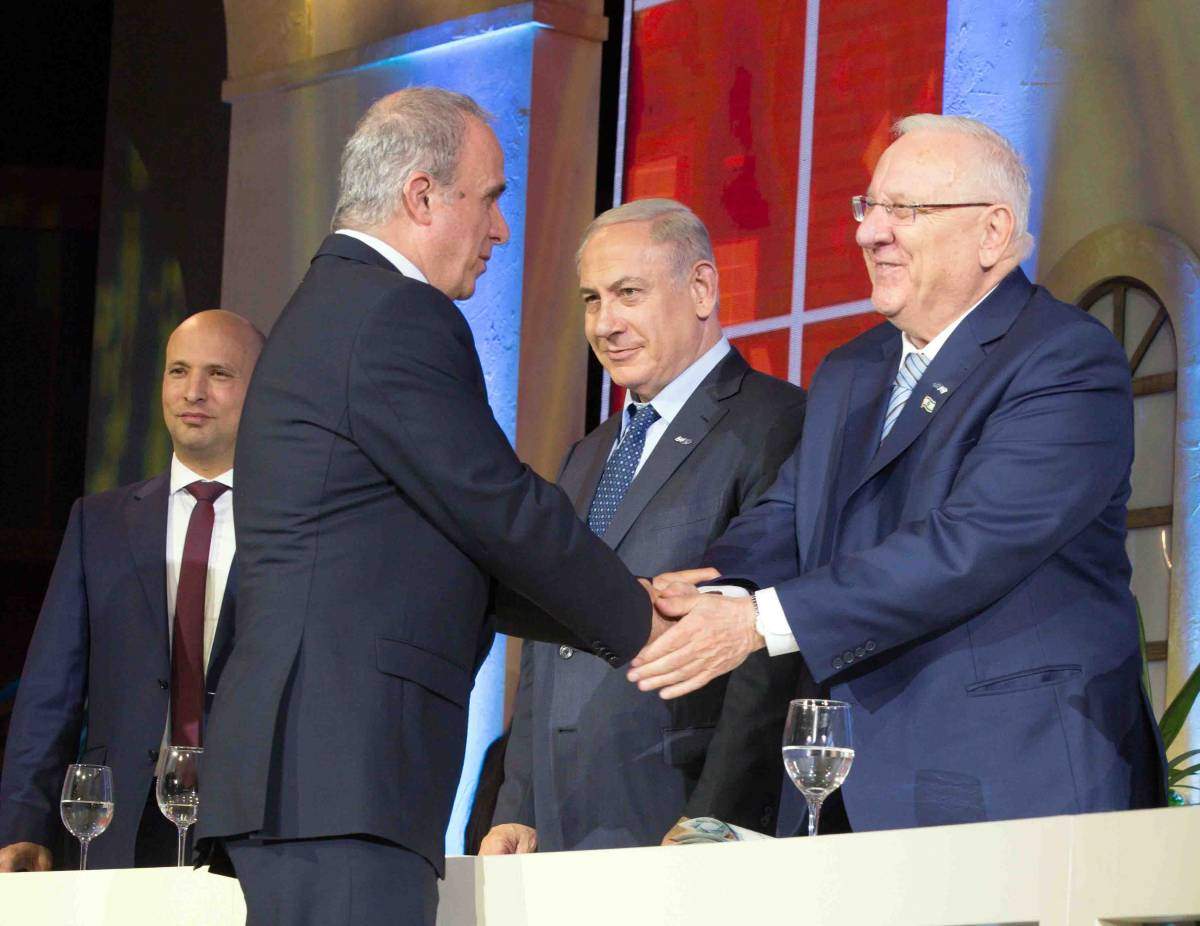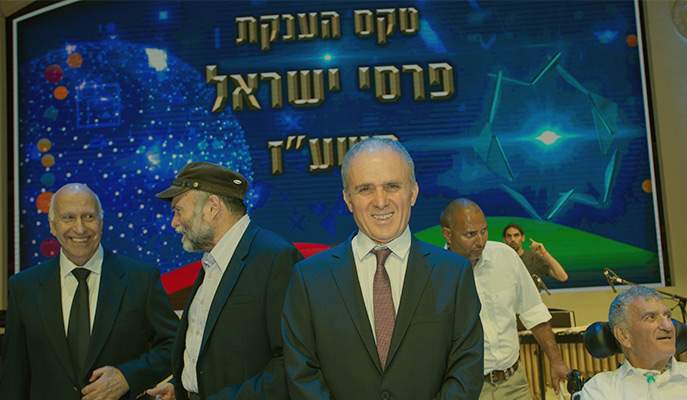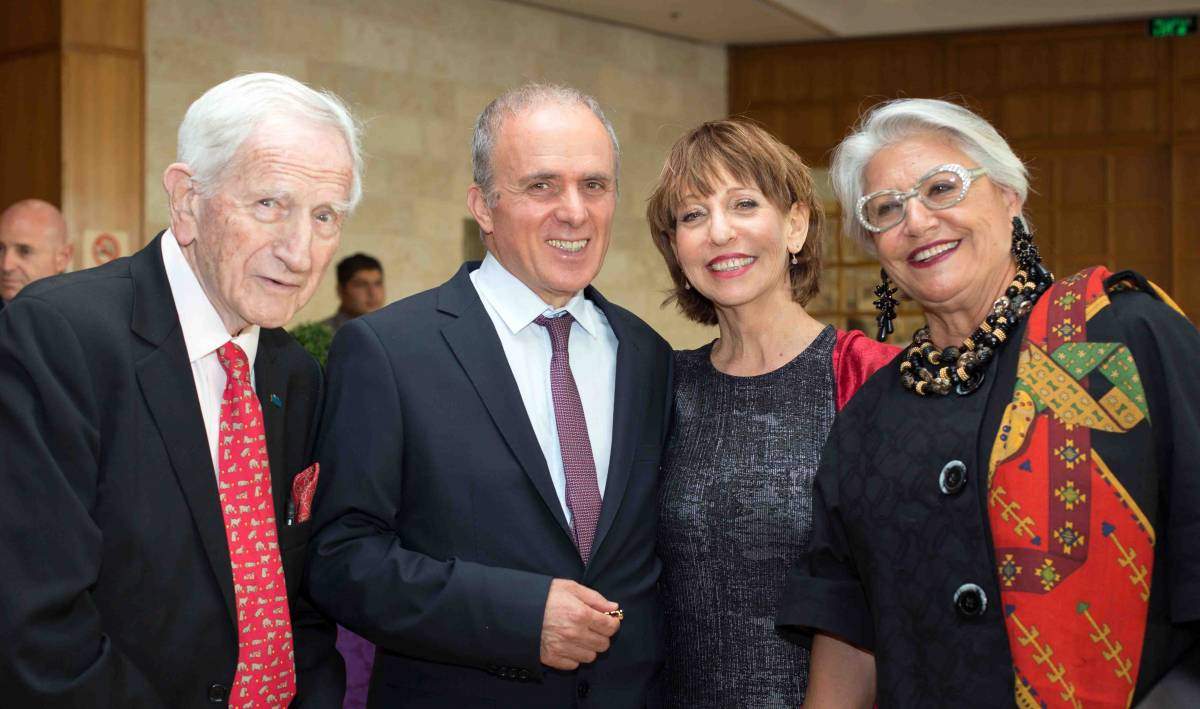Are you a journalist? Please sign up here for our press releases
Subscribe to our monthly newsletter:
On Israel Independence Day, May 2, 2017, Prof. Yosef Yarden was awarded the Israel Prize, Israel’s highest honor, by Prime Minister Benjamin Netanyahu and President Reuven Rivlin. Yarden was chosen to receive the Israel Prize in the life sciences for his world-renowned work in cancer research.

Prof. Yosef Yarden’s research sheds light on the processes by which cancer grows and spreads in the body. For example, he was instrumental in discovering the function of a molecular amplifier, called HER2, which strengthens the chemical signals that cause cells to become cancerous. His recent research has clinical applications in breast and lung cancer, with findings that may help keep the disease from recurring or becoming aggressively malignant.
Prof. Yarden joined the Weizmann Institute of Science in 1988, following PhD studies in molecular biology at the Weizmann Institute and postdoctoral fellowships at Genentech, Inc., in San Francisco, and at the Massachusetts Institute of Technology. At the Institute, he has served as Dean of the Faculty of Biology (1997-99), Vice President for Academic Affairs (1999-2001), the first Director of the MD Moross Institute for Cancer Research (1999-2001), Director of the Dolfi and Lola Ebner Center for Biological Research (1999-2001), and Dean of the Feinberg Graduate School (2001-2007).
The proteins that his lab studies are growth factors: hormone-like proteins that play a critical role in embryonic development and wound healing, but also help cancer cells to grow. These factors have matching receptors on the cell membranes; HER2 is such a receptor, and it is found in large quantities in a large fraction of breast, ovary and gastric tumors. The antibody Herceptin blocks HER2, but some breast cancers do not have HER2, nor do they have the two steroid hormone receptors that are targeted by existing drugs. Yarden and his group found, using disease models, that a combination of two antibodies that completely blocks another receptor, called EGFR, might be effective against such “triple negative” breast cancers. Another several-pronged treatment was shown in his lab to be effective in preventing the development of resistance to drugs in lung cancer.

In another study, Yarden and his colleagues identified a protein, SYNJ2, which is overexpressed in certain cancers – and its presence foretells an earlier death from the disease. In collaboration with the drug development group of the Stephen and Nancy Grand Israel National Center for Personalized Medicine, Yarden developed a molecule to target this protein. Still more research in Yarden’s lab found that cancer cells have their own biological clock, and they are likely to react differently to certain drugs, depending on the hour they are given.
Prof. Yarden is the currently director of the Dwek Institute for Cancer Therapy Research of the Moross Integrated Cancer Center. In addition to an Israel Prize this year, he is the recipient of a large number of prestigious awards, including the MERIT Award of the U.S. National Cancer Institute, and the 2007 EMET Prize in Biochemistry.

Prof. Yosef Yarden is supported by the Dr. Miriam and Sheldon G. Adelson Medical Research Foundation, the Maurice and Vivienne Wohl Biology Endowment, the Dwek Institute for Cancer Therapy Research, Rising Tide, and the Marvin Tanner Laboratory for Research on Cancer. Prof. Yarden is the incumbent of the Harold and Zelda Goldenberg Professorial Chair in Molecular Cell Biology.